Imagine this:You are trying to build the next great fintech product.
You’ve got your MVP nearly ready, your devs are pushing hard, and suddenly it’s time to choose your production database.
Do you go with the trusted relational power of PostgreSQL or the flexible, modern structure of MongoDB?
That one decision can determine how your product scales, how fast your team moves, and even how much your infrastructure costs over time.
We have helped many businesses choose between PostgreSQL and MongoDB based on real-world needs, not hype.
Both databases have matured. PostgreSQL keeps evolving with JSONB improvements and massive performance gains.
MongoDB isn’t just a NoSQL darling anymore; it now supports ACID transactions, joins, and powerful aggregation pipelines.
Each platform has grown significantly in capability, usability, and cloud-readiness.
In this blog, we have tried to explain the differences in detail.
Whether you’re searching “MongoDB vs PostgreSQL 2025” or “best database for scalability,” this blog gives you an honest, practical guide.
What is MongoDB? A NoSQL Engine Built for Speed
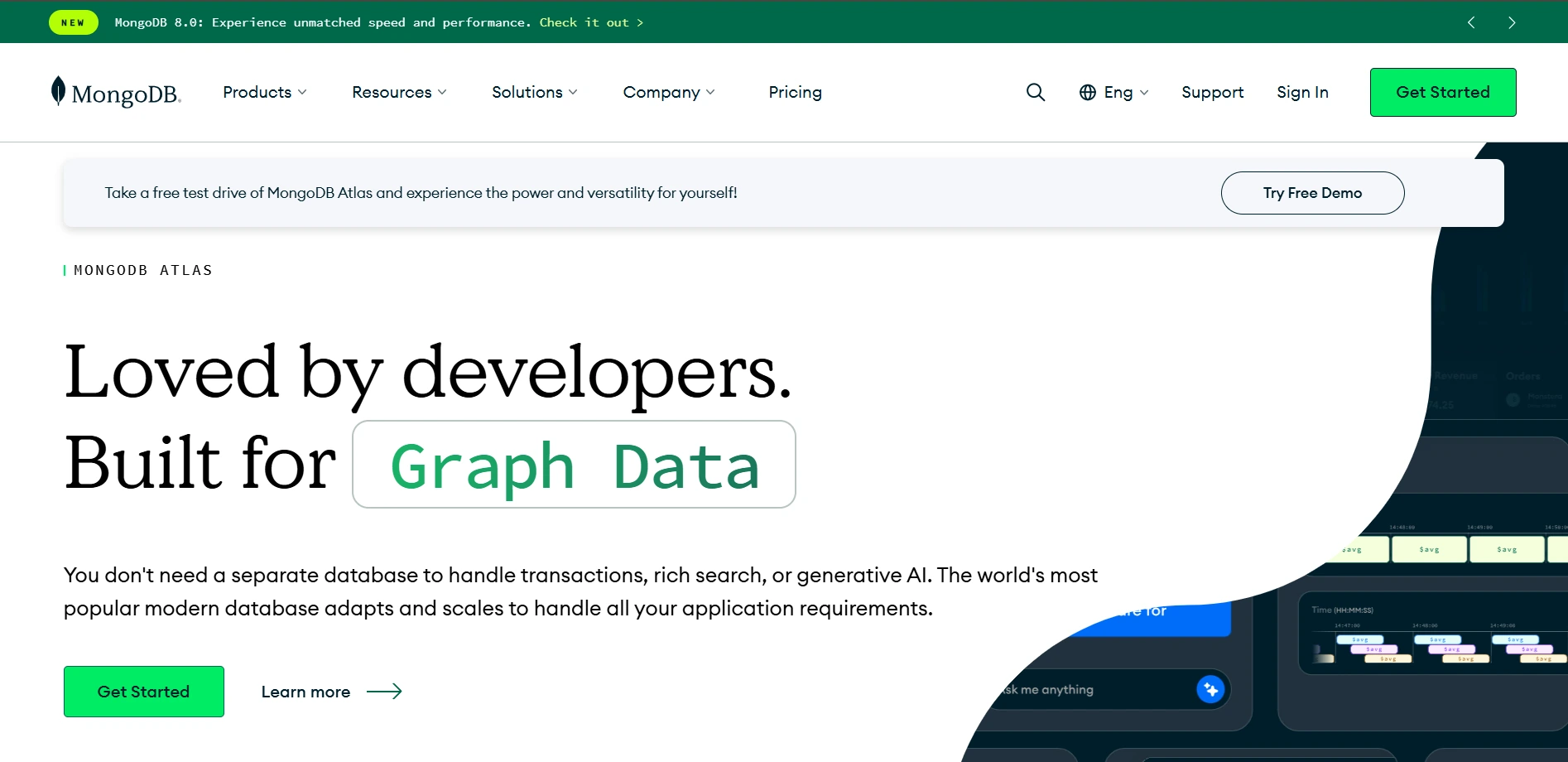
MongoDB is a document-based NoSQL database that stores data in JSON-like documents. No rigid schema, just fast, flexible storage.
It is perfect for projects where data changes often or structure isn’t predictable, like real-time apps, event systems, and fast-moving MVPs.
Why devs choose MongoDB in 2025:
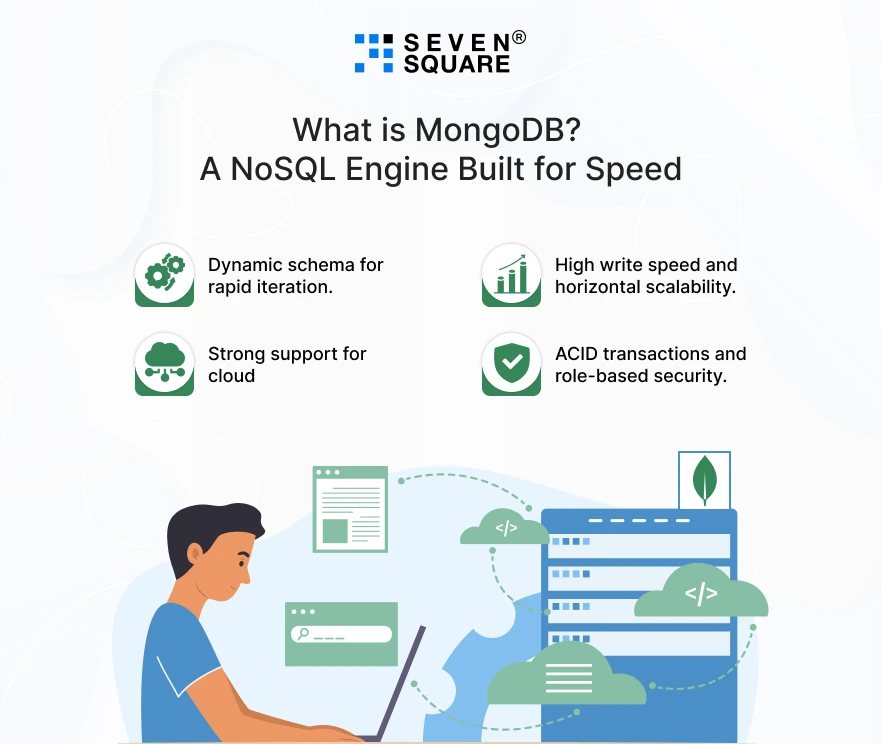
- Dynamic schema for rapid iteration.
- High write speed and horizontal scalability.
- Strong support for cloud (MongoDB Atlas).
- ACID transactions and role-based security.
We’ve used MongoDB in eCommerce platforms, real-time dashboards, and IoT systems. When speed and flexibility matter, it’s hard to beat.
What is PostgreSQL? The Gold Standard of Relational Databases
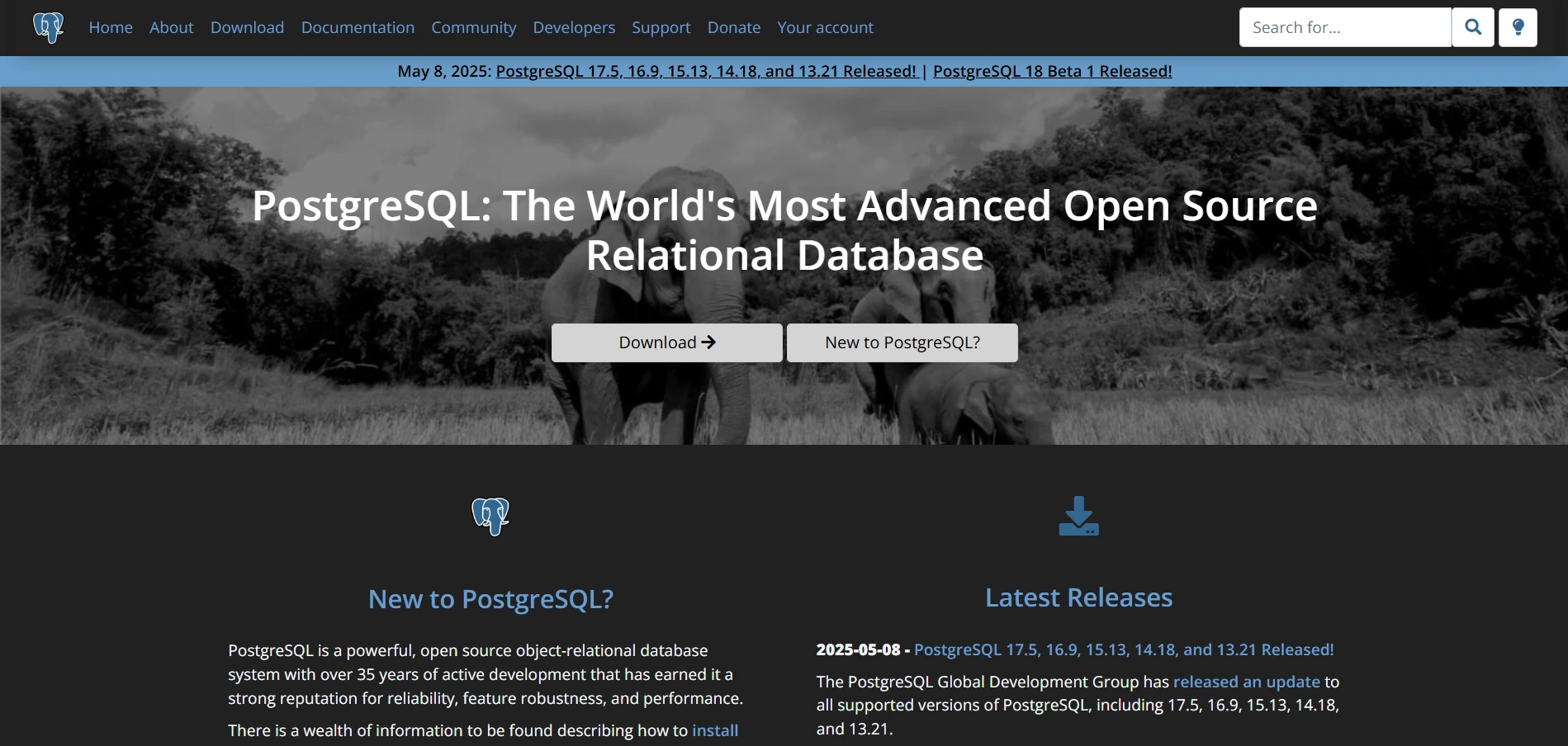
PostgreSQL is a relational database trusted by devs for decades. It uses structured tables, rows, and powerful SQL.
In 2025, it’s more than just traditional; it supports semi-structured data (JSONB), full ACID, and deep analytics.
Why teams still go with Postgres:
- Proven reliability and data integrity.
- Advanced SQL, joins, and indexing.
- JSONB for hybrid data needs.
- Works well with analytics and reporting.
At Seven Square, we’ve used PostgreSQL in fintech apps, ERP systems, and anything that demands compliance, structure, and consistency.
Core Differences: MongoDB vs PostgreSQL
Let’s keep it simple. PostgreSQL is great when structure, consistency, and deep querying matter. MongoDB is perfect when speed, scale, and schema flexibility matter.
| Feature | PostgreSQL | MongoDB |
|---|---|---|
| Data Model | Relational (tables, rows) | Document-based (JSON-like BSON) |
| Query Language | SQL | MongoDB Query Language |
| Schema | Strongly typed, fixed schema | Flexible schema |
| ACID Transactions | Full ACID compliance | Now supports ACID since v4.0+ |
| Joins | Natively supported | Limited; requires workarounds |
| Horizontal Scaling | Read scaling with replicas; sharding is hard | Native sharding built-in |
| JSON Support | JSONB type, highly optimized | Native with rich querying |
| Performance (Write-heavy) | Slower under massive writes | High write throughput |
| Use Cases | Fintech, analytics, ERP | IoT, content platforms, real-time apps |
Which is Faster: MongoDB or PostgreSQL in 2025?
Performance questions like “Which is faster MongoDB or PostgreSQL in 2025?” matter a lot to founders and product managers.
The answer is: It depends entirely on your workload.
MongoDB: It is known for high write throughput and excels in environments that deal with real-time data ingestion, flexible schemas, and user-generated content.
- In 2025, MongoDB’s performance for content-heavy, write-intensive workloads, like IoT data, clickstreams, & dynamic product catalogs, makes it a top choice.
- MongoDB’s distributed architecture, especially through MongoDB Atlas, offers out-of-the-box scalability.
PostgreSQL: IT works perfectly in complex read-heavy workloads where structured data, referential integrity, and transactional support are vital.
- Postgre’s ability to process multi-table joins and complex analytical queries makes it the best fit for fintech, ERPs, and analytics dashboards.
- In our experience at Seven Square, we’ve optimized PostgreSQL for a real-time logistics tracking app that required precision, consistency, & relational joins.
Who is the Winner?
- MongoDB wins in rapid write-heavy use cases, while PostgreSQL performs better for data integrity and analytical depth.
- For performance benchmarking, factors like query complexity, read/write ratios, and scale are more important than raw speed.
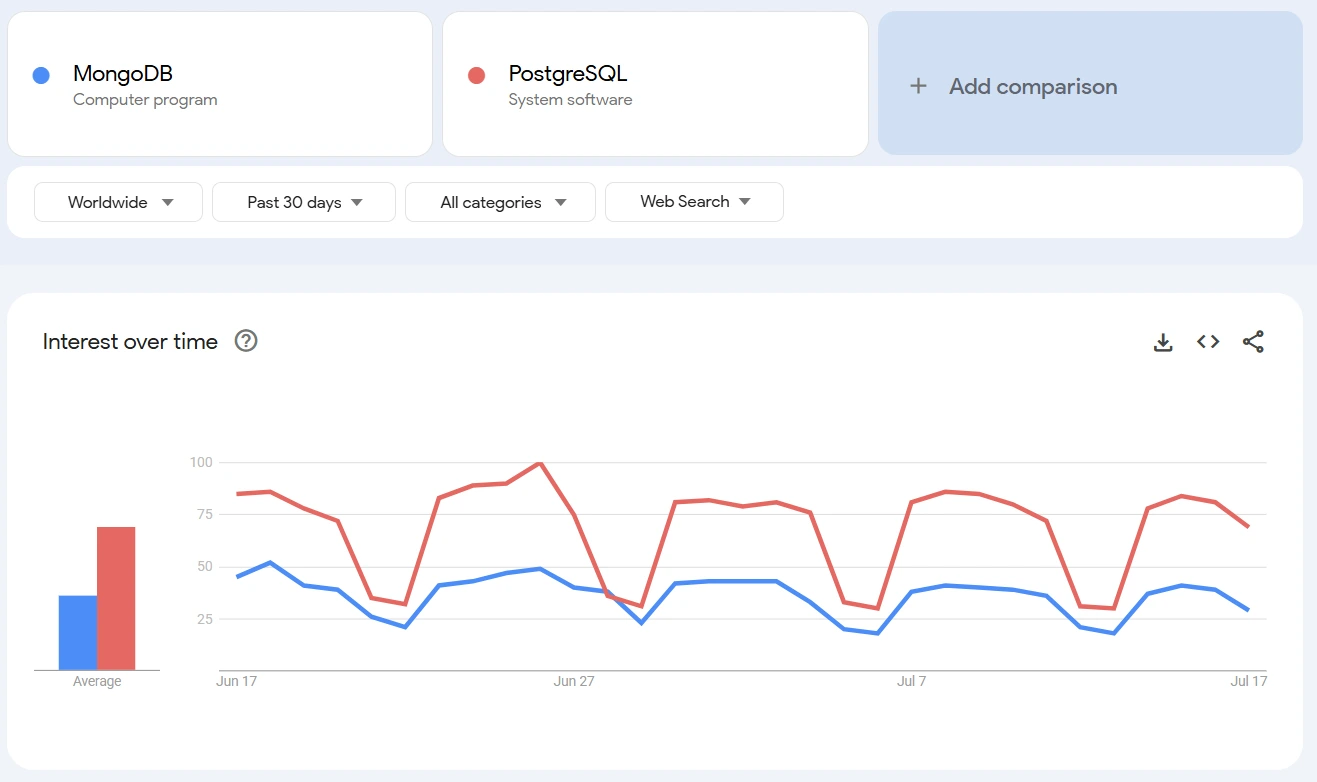
Source: Google Trends
MongoDB vs PostgreSQL Scalability: What to Expect?
Now let’s do the comparison of MongoDB vs PostgreSQL in terms of Scalability.
MongoDB: MongoDB leads in horizontal scaling as it’s built with a scale-first architecture.
- MongoDB supports native sharding, replica sets, and flexible schema design, making it perfect for globally distributed systems.
- Tools like MongoDB Atlas have matured, offering automatic scaling, backup, and multi-region deployment with minimal developer effort.
- At Seven Square, we implemented MongoDB Atlas for a client in IoT, a use case with thousands of write operations per day.
- The experience was smooth, with zero downtime and predictable performance.
- It handled sudden traffic spikes and allowed schema adjustments without breaking the flow.
PostgreSQL: It can scale horizontally with extensions like Citus or partitioning strategies, but it’s more configuration-heavy.
- PostgreSQL scales best vertically and performs better with read replicas, especially for consistent datasets.
Who is the Winner?
- If your product is likely to go from 10K to 1M users quickly and needs read/write separation across geographies, MongoDB is a smart bet.
- For slower-growing products where reporting and structured logic are crucial, PostgreSQL gives you power and clarity.
Document Storage Comparison: PostgreSQL JSONB vs MongoDB
One of the most searched comparisons on Reddit is “PostgreSQL JSONB vs MongoDB document.”
Why? Because modern apps don’t just deal with structured data anymore, they deal with flexible, unpredictable, often deeply nested datasets.
MongoDB: In MongoDB, storing and retrieving JSON-like documents is native.
- Its BSON format allows for fast reads/writes, dynamic fields, and efficient indexing.
- MongoDB is a natural fit for apps that require rapid prototyping, like CMS platforms, personalization engines, or chat apps.
PostgreSQL: Its JSONB offers binary storage, full indexing, and SQL-based querying over nested fields.
- You get the best of both worlds, flexible JSON and relational integrity.
- We’ve used PostgreSQL JSONB in multi-tenant SaaS platforms to store flexible user configs, activity logs, & metadata, without compromising query performance.
Who is the Winner?
- Still wondering about PostgreSQL JSONB vs MongoDB for document storage?
- MongoDB offers a smoother experience for heavily nested or constantly changing schemas.
- PostgreSQL is ideal when you want the flexibility of JSON but still need structure, transactions, and relational control.
- So ultimately, the answer is in the complexity and volatility of your data.
Security Comparison: PostgreSQL vs MongoDB
Security is a priority. Especially if you’re in regulated industries like fintech, healthcare, or edtech.
So, when comparing PostgreSQL vs MongoDB security, here’s what you need to know.
PostgreSQL: It offers enterprise-grade features like SSL encryption, row-level security, granular user roles, and detailed logging.
- It’s long been the choice for compliance-heavy apps.
- We’ve deployed PostgreSQL for a healthcare SaaS platform where HIPAA and GDPR compliance were mandatory.
- With PostgreSQL’s built-in security features, we ensured encrypted data flow, access logs, and isolation for multi-tenant environments.
MongoDB: It has features like end-to-end encryption, role-based access control, and network-level isolation.
- In MongoDB Atlas, you can configure IP whitelisting, VPC peering, and real-time alerting, making it enterprise-ready.
- Still, PostgreSQL offers more granular control by default. For highly regulated environments, PostgreSQL gives you tighter reigns.
So while comparing MongoDB security vs PostgreSQL, here’s your rule of thumb:
- MongoDB is secure enough for most cloud-native apps.
- PostgreSQL is your fortress when compliance is non-negotiable.
How Seven Square Helps You Pick the Right Database?
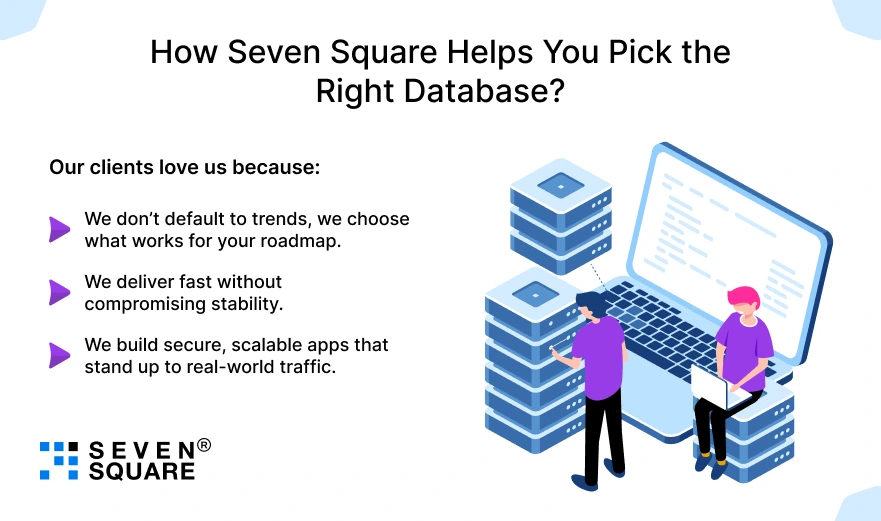
We don’t just compare technologies, we ensure you make the smart choices.
Whether you’re scaling a high-traffic SaaS app or building a real-time analytics dashboard, we’ve helped companies across industries like logistics, fintech, retail, edtech, and healthcare to make the right call between MongoDB and PostgreSQL.
Our clients love us because:
- We don’t default to trends, we choose what works for your roadmap.
- We deliver fast without compromising stability.
- We build secure, scalable apps that stand up to real-world traffic.
If you’re searching for the best database for startups in 2025 or want clarity on PostgreSQL vs MongoDB performance, we’re here to help with our experience-backed solutions.
Want to Integrate MongoDB or PostgreSQL? Contact Us Now!
Who is the Best: MongoDB or PostgreSQL?
There’s no universal winner in the MongoDB vs PostgreSQL debate.
MongoDB wins for flexibility, speed, and scalability, especially when the product is fast-moving and schema-agnostic.
PostgreSQL remains unbeatable for structure, data integrity, and long-term analytical needs.
The best approach?
Don’t get stuck in comparison charts. Talk to a team that’s built across both like us at Seven Square.
FAQs
- MongoDB provides better performance for real-time data ingestion and dynamic schemas.
- PostgreSQL is faster for analytical queries, joins, and structured data processing.
- So it depends on query complexity and read/write ratios.
- MongoDB: NoSQL, document-based, schema-less, high write throughput.
- PostgreSQL: Relational, SQL-based, fixed schema, strong ACID compliance.
- Choose based on flexibility vs structure and scaling needs.
- Yes. MongoDB’s native sharding, replication, and MongoDB Atlas make it highly scalable.
- It’s a strong choice for apps expecting millions of daily operations or global user bases.
- For fast-moving SaaS with changing features, MongoDB may be better.
- If your SaaS needs consistency, transactions, and reporting, PostgreSQL is the better long-term foundation.